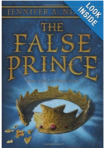Making Readers
My Mother helped make me a reader. I remember being read to before I was 7 years old. (I lived in W. VA until then and I have memories of being read to in the W. VA house.) So I got that early exposure to reading, and I’m pretty sure I was reading before I went to school. Then, we moved, and in our new house, I remember my Mom and I going to the library to get books every week. I walked out each week carrying so many books I could barely hold them. I remember going home with every book in a picture books series–back then it was books like Flicka, Ricka and Dicka and Snip, Snap,and Snurr. (These have been reprinted in the mid-90’s.)
50 years later, I could have told you (before I looked them up), that they were set in Sweden. I knew they were books about triplets and that I loved poring over the illustrations.
I remember moving into chapter book series like Nancy Drew and The Hardy Boys and then into Heinlein and Asimov (thanks to my brother, Rod.) All of this was done through the public library. (Thank you, Roanoke City for building a new one on the grounds of my Jr. High School!)
Then, I got more into science fiction and fantasy and in college and when I began to work, I began buying my own paperbacks–and so when I moved into my house, I had to have floor to ceiling bookshelves for those books I had been moving from place to place. I also have bookshelves all over my classroom and have spent way too much of my lifetime salary supporting my love of books.
I mostly spend on children’s books now–just to keep up with the upper elementary kids I teach. I introduced Out of My Mind and The One and Only Ivan and Hurt Go Happy to the kids in my school. I read the Nerdy Book Club posts and often buy the books reviewed there. Just the other day I watched the Scholastic Spring Preview and immediately got some of those.
And I am still wondering why schools often don’t make a lifetime reader. I grew up on Lucy Calkins, Donald Graves, Regie Routman, Jane Hanson, and others of that era where we began talking about really teaching reading and writing like real readers and writers act. Yeah, I’ve read Donalyn Miller’s Book Whisperer and Reading in the Wild. I have kids who are readers…and I have kids who can read, but choose not to. I have kids who HATE, HATE, HATE anything that has to do with Daily 5 or a literacy menu, because they see that as making reading boring. Kids don’t mind discussing books–but filling out packets of comprehension questions doesn’t cut it with them. And, I’m seeing more and more of that coming back into our classrooms.
So I struggle with preparing them for the state tests, which gives them a passage and asks them to answer questions like those typically found in packets. I sporadically give them worksheets on making inferences and reading for meaning, and interpreting various kinds of reading (poetry, narratives, non-fiction, etc.) but those don’t make them a reader. They support them becoming a good test taker. And, as a teacher, I do see that as part of my job–because taking tests is part of schooling as we know it now.
I spend most of my time with students talking books, sharing books, enjoying stories together and supporting them loving to read, thinking deeply about connections and meanings and themes. But it’s the talking that matters to my kids. They have a lot to say, and most of them are really thinking. They have questions, they wonder, they ponder why an author did this or that, they imagine being in the story, they engage with the characters, they connect around similar plots and characters, and they share recommendations for good reads.
I wish they could prepare a portfolio for the state assessment. I wish theycould write a testimonial to the kind of reading they do. I wish they could share their blog posts of reading recommendations. There are a ton of things my kids–and all kids–could do to show they are successful readers beyond reading a passage and answering multiple choice questions about it. But while my state requires that test, I’ll continue to do test prep–enough for the kids to do well, but not so much they begin to see reading as a test to pass, or as answering questions, or as worksheets to do.
And, in the meantime, we’ll continue to share good books, read together, cry and laugh together over events in the stories we co-habitate in, and we’ll look to finding the next great book that flies around my classroom because we just can’t put it down. Because while I am expected to do test prep, I believe making readers is more important.

